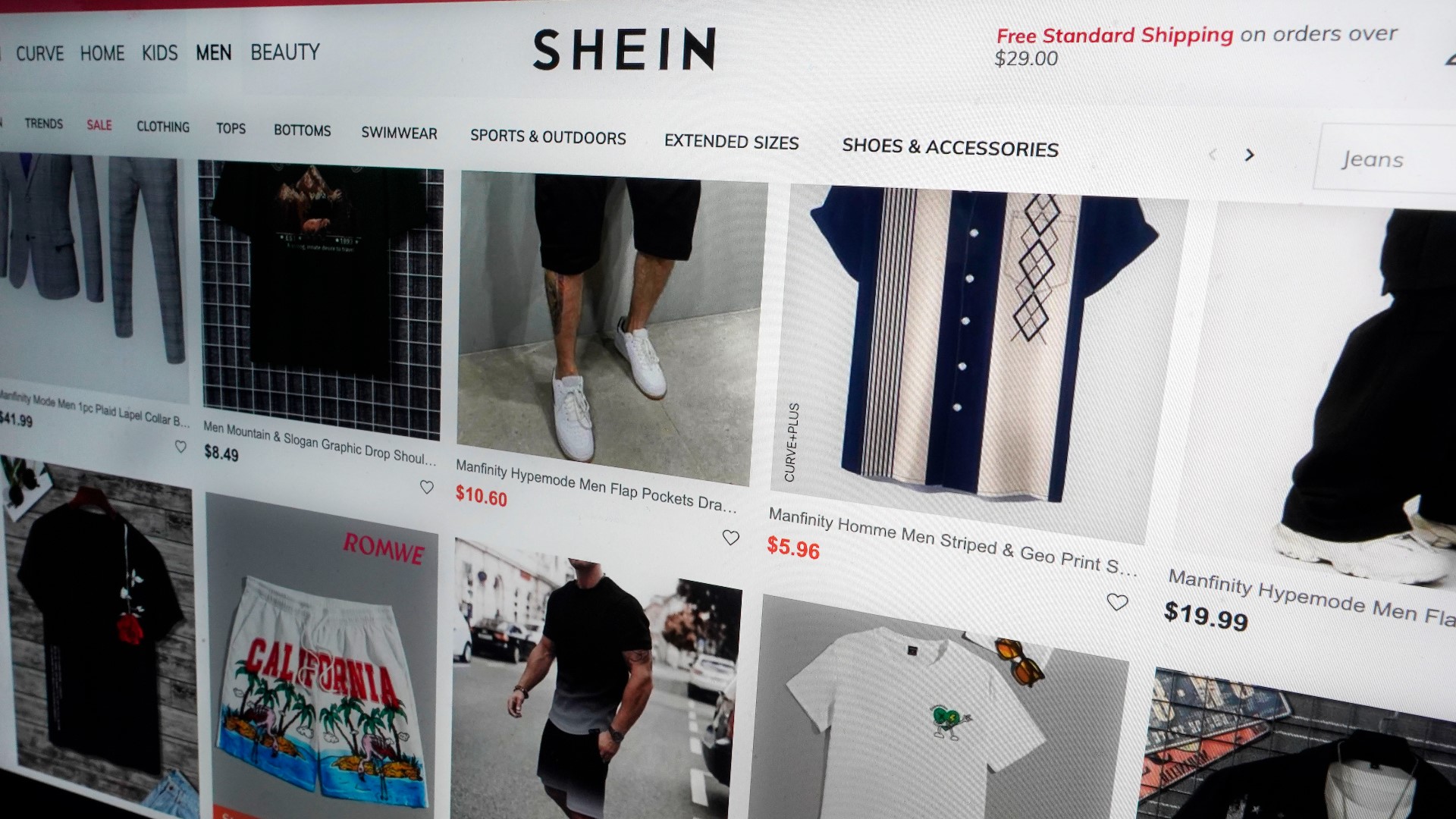NEW YORK — In a few short years, China-based apps Shein and Temu have surged within the U.S. consumer landscape, offering a seemingly endless variety of clothes, makeup and household goods for rock-bottom prices.
Now, the two are locked in a legal battle, each accusing the other of illegal conduct in their quest to woo American shoppers.
Temu sued Shein in federal court in Massachusetts, accusing the older company founded in 2012 of strong-arming suppliers into exclusivity agreements to deprive Temu of goods, in violation of U.S. antitrust laws.
Shein forces manufacturers "to sign loyalty oaths certifying that they will not do business with Temu," reads the complaint, filed July 14. If they decline, Shein imposes "extrajudicial fines" on the manufacturers and publicly shames them. These alleged antics have led to 10,000 products being pulled from Temu's site, according to the suit.
Shein's alleged strong-arming is a problem, according to Temu, because there are only a relative few manufacturers in China who can keep up with the lighting-fast turnaround required by Temu, and Shein has locked up 8,338 of them into exclusivity agreements, according to the suit. Temu claims that it has lost tens of thousands of listings after suppliers were bullied by Shein into ending their relationships with Temu.
Such exclusivity agreements are illegal under U.S. antitrust law. It's also a bad deal for consumers, because "Temu beats just about everyone else on price," the suit claims.
Copyright claims galore
As the complaint lays it out, Shein and Temu are both part of the "ultra-fast-fashion" world, which "distinguishes itself … by offering not only an overwhelming number of products, but also frequently replacing those products with new designs." Suppliers to Shein and Temu hold almost no inventory; rather, they generate thousands of new designs, produce small production runs of as few as 100 items, frequently change styles depending on shoppers' feedback and do it all on razor-thin margins, resulting in prices as low as $3 for a T-shirt or $15 for a dress.
Temu also accuses Shein of filing frivolous copyright claims against suppliers to punish sellers who use both platforms, resulting in Temu losing out on merchandise.
Shein sued Temu for copyright and trademark infringement earlier this year in Illinois. Earlier this week, three fashion designers sued Shein in California, accusing the company of racketeering and stealing fashion designs.
Shein declined to comment on that suit. In a statement on Temu's suit this week, Shein said, "We believe this lawsuit is without merit and we will vigorously defend ourselves."
A fight in the fast-fashion aisles
The legal battle is unfolding as the two companies fiercely compete for U.S. consumers in the face of scrutiny from U.S. lawmakers.
Shein, which entered the U.S. market in 2017, has come to dominate the fast-fashion industry, where it beat out competitors like Fashion Nova, Forever21, H&M and Zara, taking in more than 50% of sales, according to Temu's suit — a position that makes it a "monopolist," according to its competitor.
Temu burst onto the U.S. shopping scene in September 2022 with a heavy advertising campaign that included influencer sponsorships, a series of paid promotional articles in major U.S. newspapers and a $45 billion Superbowl ad. It quickly became the most-downloaded app on Google and Apple and is currently among the top 10 shopping apps, according to Similarweb.
"It's been pretty unprecedented to see a shopping app take off so quickly and get so much traction early on," Sky Canaves, a senior retail and e-commerce analyst at Insider Intelligence, told CBS MoneyWatch.
The app has also raised consumers' suspicions, with many asking if the too-good-to-be-true low prices are some kind of scam. In the past year, customers have filed nearly 600 complaints against Temu with the Better Business Bureau, where it currently has a C-minus rating.
"You have a lot of consumers wondering, what is this company? Is it real? But because it's been so cheap and low-risk to try out … a lot of consumers have been willing to at least give it a try," Canaves said.
In Canaves' view, Temu has benefited from the intense inflation in the U.S. over the past year, as well as heavy advertising on social media and a willingness to sell at rock-bottom prices. Its overnight popularity, however, might not be enough for long-term profitability, she said.
"I think they are selling a lot of goods at a loss," she said.
Serious concerns of slave labor practices
U.S. lawmakers have also raised concerns about Temu and Shein's data collection and labor practices. A Congressional report published last month suggested that neither company is fully complying with bans on goods from China's Xinjiang region, writing, "American consumers should know that there is an extremely high risk that Temu's supply chains are contaminated with forced labor."
The U.S.-China Economic Secuity and Review Commission also flagged numerous "controversial" business practices by the two firms in an April report, which described the growth of Shein as "a case study of Chinese e-commerce platforms outmaneuvering regulators to grow a dominant U.S. market presence."

